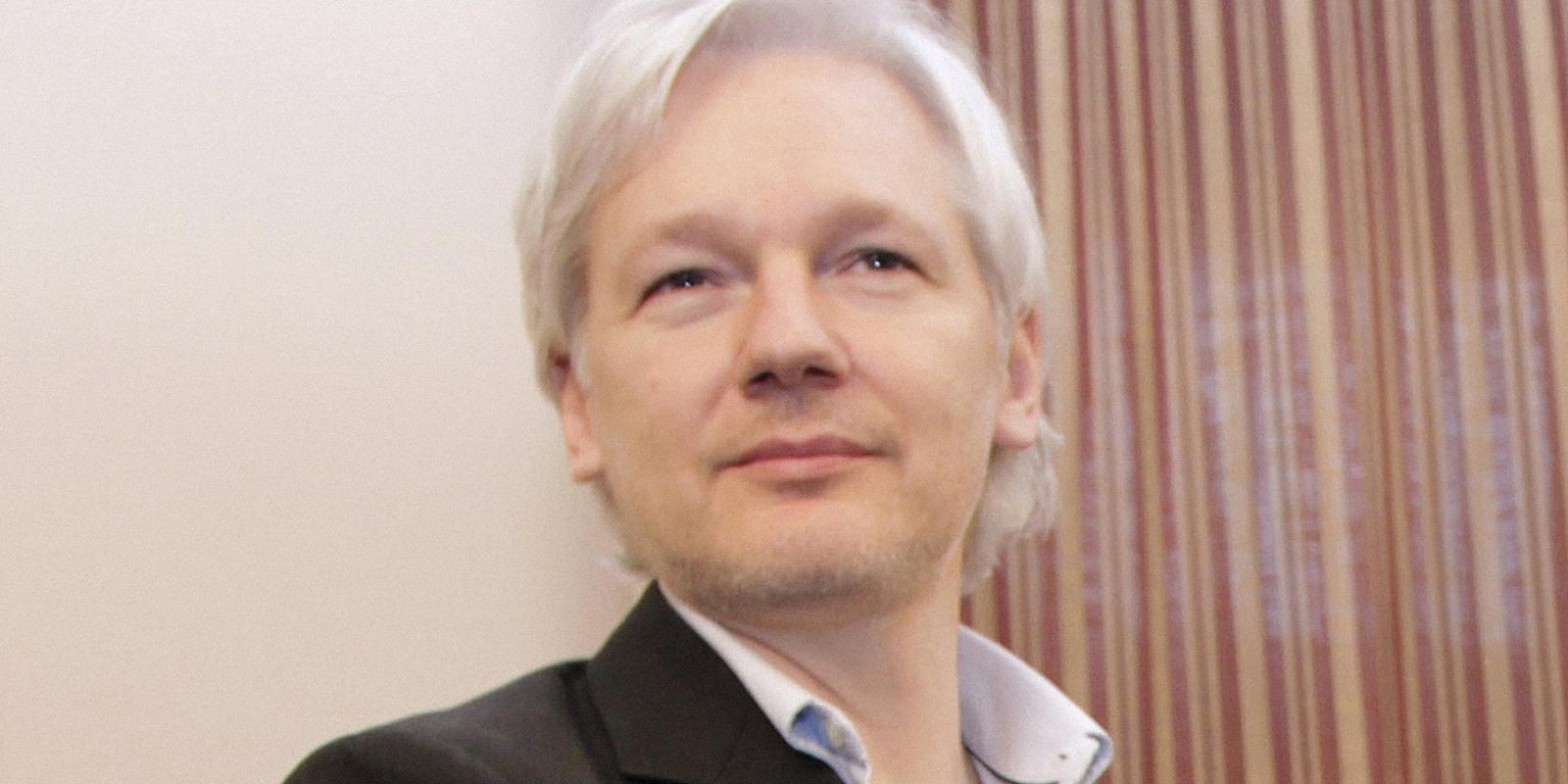Julian Assange’s lawyer says the WikiLeaks founder will be “standing by” his promise to “agree to U.S extradition” following the commuting of whistleblower Chelsea Manning’s prison sentence by President Barack Obama.
But that doesn’t mean he’s turning himself in—nor has the U.S. launched extradition proceedings against Assange.
A statement made Wednesday by Melinda Taylor, a member of Assange’s legal team, was initially interpreted as meaning that he planned to travel to the U.S. to meet whatever fate might await him.
“Everything that he has said he’s standing by,” Taylor reportedly told the Associated Press.
Assange lawyer @themtchair on Assange-Manning extradition 'deal': "Everything that he has said he's standing by."
— WikiLeaks (@wikileaks) January 18, 2017
Just hours later, however, another Assange legal representative clarified that Obama did not go far enough by reducing Manning’s sentence. In a statement to the Hill, Assange attorney Barry Pollack said Obama’s actions did not meet the standard Assange called for in his bargain because Manning will be released in May, not “immediately.”
“Mr. Assange welcomes the announcement that Ms. Manning’s sentence will be reduced and she will be released in May, but this is well short of what he sought,” said Pollack. “Mr. Assange had called for Chelsea Manning to receive clemency and be released immediately.”
Soon after the Hill published Pollack’s statement, WikiLeaks further muddied the waters by saying Assange would be “happy to come to the U.S. provided all his rights are guaranteed.”
Assange is still happy to come to the US provided all his rights are guarenteed despite White House now saying Manning was not quid-quo-pro.
— WikiLeaks (@wikileaks) January 18, 2017
Manning had been imprisoned after leaking over 725,000 secret U.S. government and military documents to WikiLeaks and Assange had been one of many high-profile voices calling for Manning’s clemency—not just a commutation of her sentence—even going so far as to offer himself in exchange for her freedom in tweet last September:
If Obama grants Manning clemency, Assange will agree to US prison in exchange — despite its clear unlawfulness https://t.co/MZU30S3Eia
— WikiLeaks (@wikileaks) September 15, 2016
The notion was reiterated just last Thursday, as Obama entered his final week in office:
If Obama grants Manning clemency Assange will agree to US extradition despite clear unconstitutionality of DoJ case https://t.co/MZU30SlfGK
— WikiLeaks (@wikileaks) January 12, 2017
So, as news of Manning’s sentence reduction broke on Wednesday, attention quickly turned to whether Assange would stand by his word. In a statement released at the time, Assange did not address the tweets, instead praising Manning as “a hero, whose bravery should have been applauded not condemned” and called on the U.S government to “end its war on whistleblowers and publishers.”
As a question mark looms over an extradition to the U.S, should it take place it might be more of a self-extradition. There was only one standing public extradition ruling against Assange, not from U.S authorities but from Swedish authorities.
Assange has been living in the Ecuadorian embassy in London since 2012, attempting to avoid extradition to Sweden where he has been wanted since 2010 in connection with allegations of sexual misconduct. He has not been indicted and has always denied the allegations.
Assange has, however, voiced fears that extradition to Sweden over its investigation would ultimately result in extradition to the U.S to face espionage charges. That said, it is unclear whether the Department of Justice has any standing or sealed indictments leveled at Assange.
In the run up to the 2016 presidential election, WikiLeaks published thousands of leaked emails from the Democratic National Committee and from the inbox of Hillary Clinton’s campaign chairman, John Podesta—the content of which Donald Trump, now the president-elect, referenced at rallies as confirmation of corruption. The arising embarrassment and controversy undoubtedly damaged Clinton’s presidential bid, indirectly aiding Trump’s.
Should Assange make his way to America, his fate will likely be in the hands of the Trump administration which may, as a result of WikiLeaks’ role in the U.S. presidential election, perceive of him much more favorably than the Obama government.
